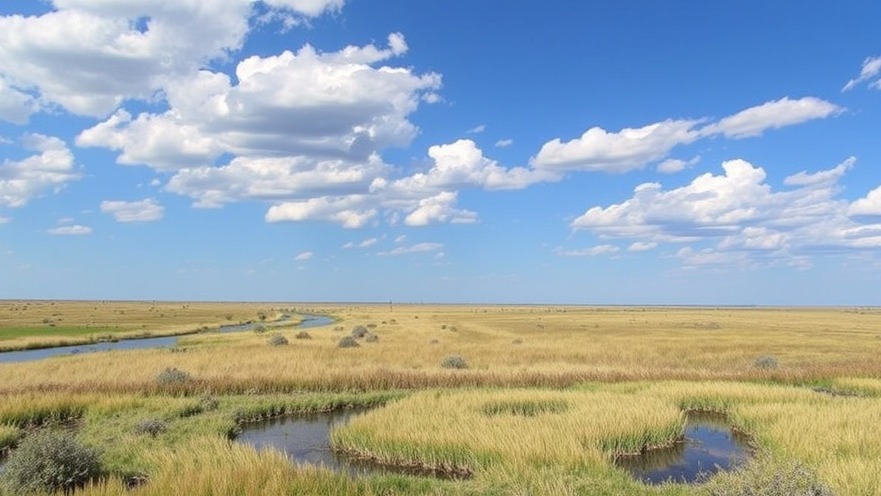
The Cessation of Conservation Efforts: A Bitter Blow to Texas Wildlife
In a move that has stirred significant concern among conservationists, the Trump administration has halted a long-anticipated expansion of the Muleshoe National Wildlife Refuge, Texas' oldest wildlife haven. Established in 1935 by President Franklin D. Roosevelt, the refuge was slated for a dramatic increase of up to 700,000 acres. This expansion aimed to protect crucial habitats for migratory birds and various wildlife species, including the vulnerable sandhill crane and the lesser prairie-chicken.
Energy vs. Conservation: The Political Balancing Act
The decision to scrap the expansion was influenced heavily by the Trump administration’s broader energy policies. Characterized by a push to "unleash American energy," the administration withdrew the final Land Protection Plan last month. This reversal was not only a setback for wildlife advocates but also highlighted the ongoing tug-of-war between energy interests and environmental conservation in Texas.
Defending Wildlife: The Role of Local Advocates
Local representatives, including U.S. Reps. Jodey Arrington and Ronny Jackson, criticized the proposed acquisition as a "land grab." However, advocates for the environment argued that the Biden administration's plan was designed to be voluntary, meaning it would have engaged locals willing to sell their land for conservation purposes. Amid this clash of priorities, the voices of those advocating for wildlife protection have grown louder, defending the importance of ecological balance over economic interests.
The Future of the Lesser Prairie-Chicken: An Endangered Species' Plight
The lesser prairie-chicken, particularly at risk of extinction, has seen its population dwindle by a staggering 90% since the 1960s. In 2023, federal protections were restricted further under the current administration, raising alarm among bird conservationists and environmentalists alike. Mike Leahy, of the National Wildlife Federation, expressed concern that without concerted efforts to restore their habitats, the future of these birds remains precarious.
Community Voices: The Importance of Local Conservation Efforts
The Muleshoe refuge isn’t just a patch of land; it represents a relationship between the local community and its natural resources. More than a decade of detailed planning and coordination with residents aimed to foster both conservation and local economic growth through eco-tourism and recreational activities. As environmental priorities clash with political agendas, community members find themselves at the heart of the debate, recognizing the fundamental value of preserving their natural heritage.
The National Implications: What This Means for Wildlife Across America
The decision to halt the expansion of the Muleshoe refuge reflects broader trends affecting wildlife protections nationwide. As energy policies take precedence, the balance that once favored conservation is increasingly tipping towards development. The implications are significant: many individuals are left wondering how a halt in wildlife conservation efforts could affect the ecosystem not just regionally but across the country.
Though the expansion plan has been scrapped for now, advocates remain hopeful that opportunities for conservation will arise in the future. As residents, politicians, and conservationists navigate these changes, the essential question remains: How can Texas maintain its rich wildlife heritage?
 Add Element
Add Element  Add Row
Add Row 



Write A Comment